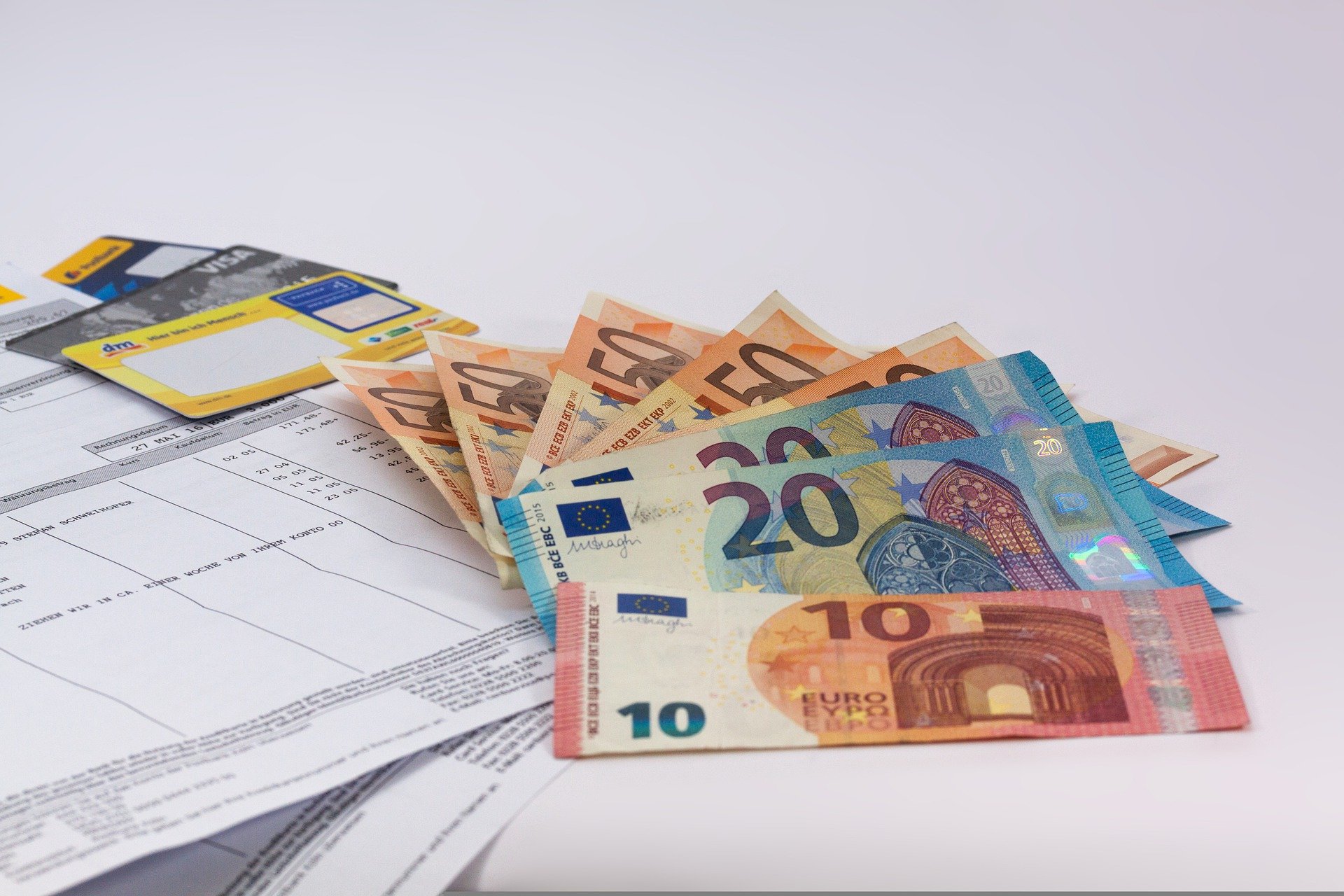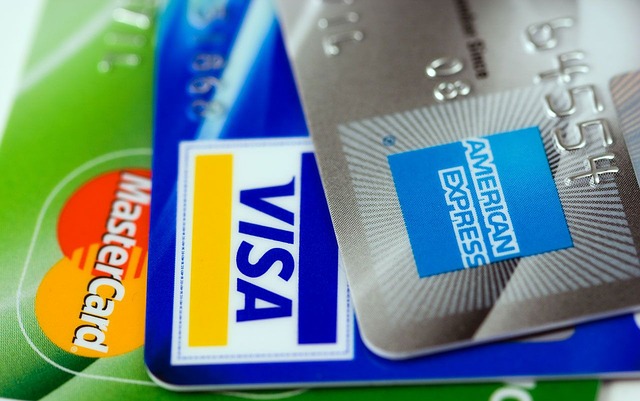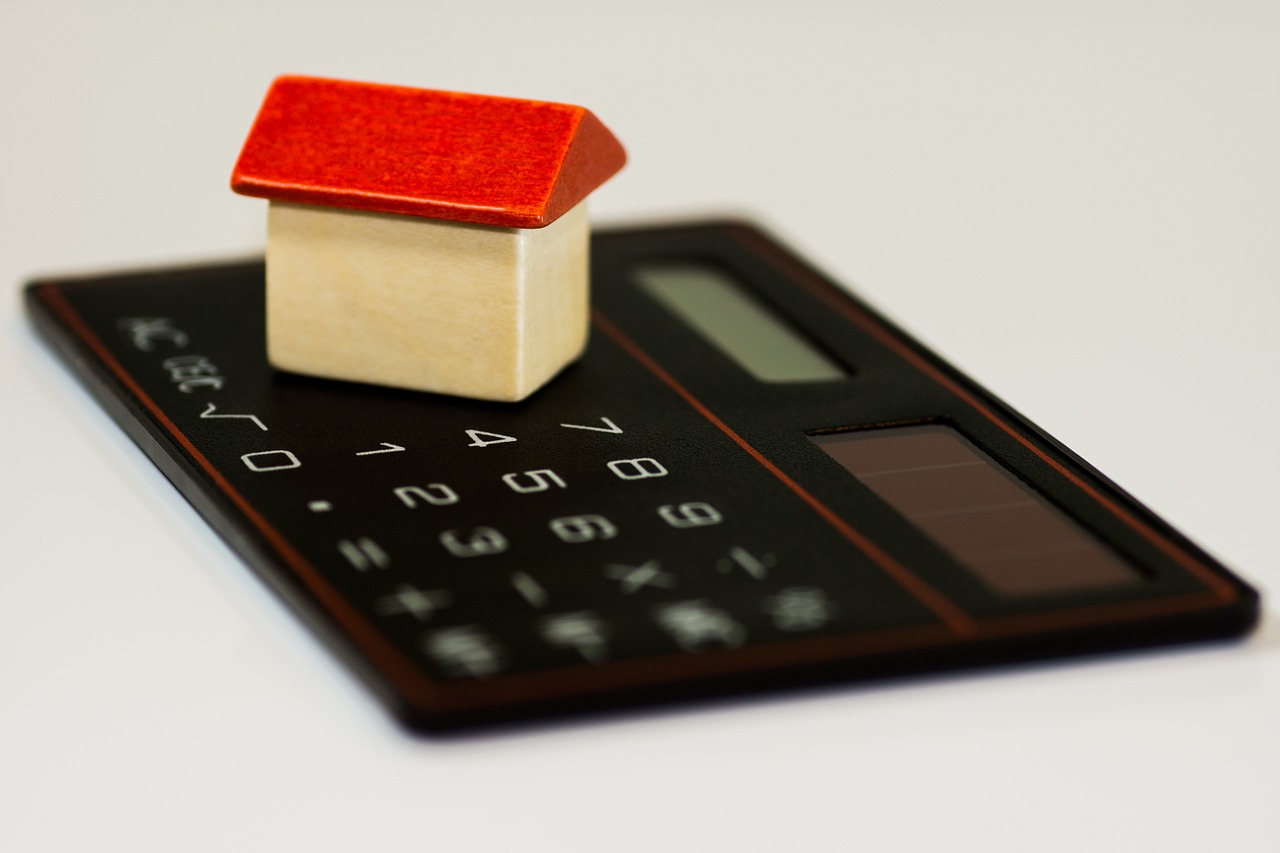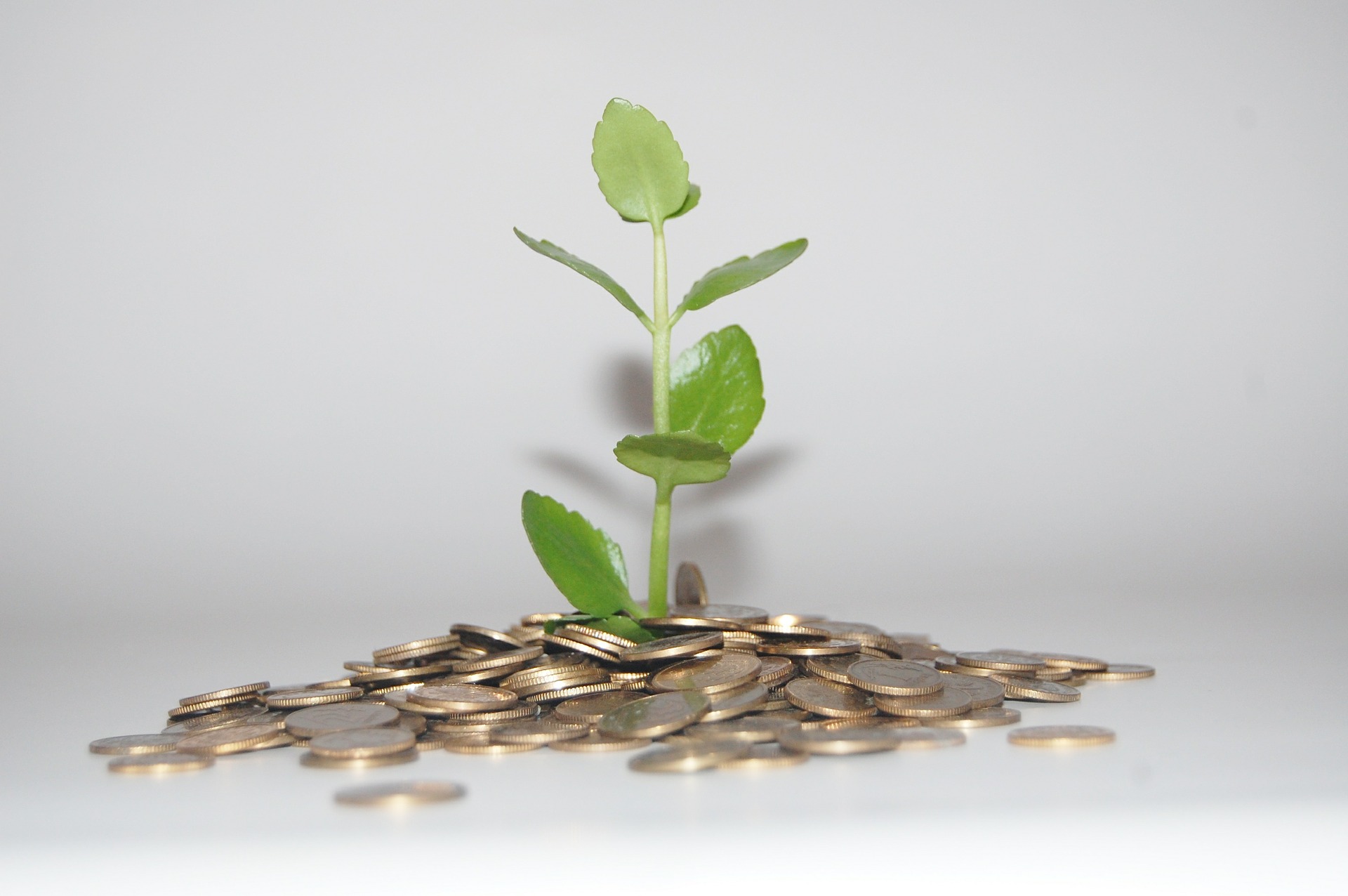Algunas deudas serán necesarias para pagar la educación de tus hijos o para generar nuevos ingresos
Seguramente, desde que eras pequeño has escuchado con insistencia que las deudas no eran buenas para tu salud financiera y que por lo tanto debías evitarlas. En parte tenían razón; no es muy inteligente que vivas eternamente endeudado con la tarjeta de crédito porque la utilizas para pagar tus gastos de consumo. Muchos padres también decían que solamente había que pedir prestado en momentos muy críticos, porque además de la vergüenza que eso causaba, quizás se tuvieran dificultades para honrar el compromiso de devolver el dinero recibido en las condiciones pactadas.
Es cierto que no todo lo que brilla es oro, pero tampoco todo lo que veas de color negro es carbón. Hay casos en que las deudas se adquieren para algo más noble que comprar el teléfono portátil de última generación, o para irnos un mes de vacaciones a una paradisíaca isla caribeña. A veces necesitarás endeudarte para la educación de tus hijos o para generar ingresos, por ejemplo: cuando compras herramientas y equipos que necesitas para hacer tu trabajo, o cuando te inscribes en un seminario de formación; ese tipo de deudas son necesarias y el hecho de que las adquieras demuestra que estás actuando de manera inteligente. También puedes endeudarte para comprar un bien del que sabes que aumentará su valor con el paso del tiempo. En cada uno estos casos, estarás adquiriendo una deuda buena porque gracias a ella, a la larga podrás mejorar tu situación financiera, tu bienestar y tu calidad de vida. Asume que la deuda buena es aquella que adquieres para comprar bienes que aumentan su valor con el paso del tiempo, o las que te permiten obtener beneficios económicos (inmediatos o futuros). Considera también que una deuda es buena cuando adquieres bienes que te permiten reducir los gastos recurrentes. Como verás, no es lo mismo pedir dinero prestado para el consumo inmediato (que no te reportará ningún beneficio económico) que endeudarte para asegurar la educación de tus hijos, o para hacer una inversión a medio o largo plazo.
De manera general, asume que la deuda mala (la que debes evitar) es la que contraes en función de tus hábitos de consumo. Si necesitas pagar el mercado semanal con tarjeta de crédito y te excedes en el plazo de pago sin intereses, estarás adquiriendo una deuda mala porque: 1) estás gastando lo que no tienes; 2) te estás endeudando para poder vivir, y 3) no solamente tendrás que devolver (tarde o temprano) el dinero que pediste prestado, sino que lo tendrás que hacer pagando los intereses (que no son bajos), con lo que tu probabilidad de ahorro será cada vez menor. Igual ocurre con los pagos con tarjeta de crédito en restaurantes (salvo que lo hagas para convencer a tu cliente y firmar un buen contrato), o los préstamos para equipar tu casa, salir de vacaciones, o para adquirir el vehículo, por citar algunos ejemplos.
Uno de los grandes errores que se cometen es caer en la tentación de comenzar a pagar un bien o servicio 3 o 4 meses después de adquirido e incluso luego de haberlo disfrutado. Imagínate que tengas la posibilidad de irte dos semanas de vacaciones a Tahití, sin pagar absolutamente nada hasta dentro de 3 meses. ¿tu que harías si dispusieras del tiempo para ello? ¿Durante cuántos meses o años verías mermada tu capacidad de ahorro por esas dos semanas de vacaciones?
Otro error muy grave es el de recurrir a una agencia de consolidación de deudas, o solicitar préstamos rápidos en efectivo (que los aprueban en cuestión de minutos). Por lo general, los clientes que acuden a estas empresas son personas que atraviesan una mala situación financiera y sienten un alivio momentáneo al contratar con ellas, sin considerar que no solamente se mantienen las razones de sus problemas financieros, sino que agravan la situación, puesto que ahora la deuda es mayor que la que tenían.
Dos recomendaciones finales: la primera, nunca te dejes seducir por el crédito fácil y la segunda, antes de endeudarte, pregúntate si verdaderamente necesitas lo que vas a adquirir, asegúrate de que vale la pena y de que estás en condiciones de pagar las cuotas mensuales y las anualidades (no creas que Dios proveerá); piensa en lo que debes sacrificar con la deuda que estás adquiriendo y en los posibles beneficios que esa decisión te reportará. Toma la decisión de endeudarte si después de responder estas preguntas, estás convencido de que tu mejor opción es el endeudamiento.
It is not necessary to have large fortunes to have the need to develop the family budget. Many families think that this budget is not necessary because they only have a modest source of income and their monthly expenses are typical of any average family, like paying rent, utility bills, some escapades to the movies, school for children, or vehicle expenses. Regardless of the economic slack your family may have, you need to prepare the family budget.
Just as it happens in a company, if you do not adequately handle the household economy, you’ll be committing serious mistakes with dire consequences for your pockets (and your health), and you’ll be repeating again and again the infamous phrase: “I can’t make ends meet“.
To avoid such awkward moments, you must bring order to your domestic economy and the first practical step to achieve this is to develop a simple family budget. The budget will bring the bills on time and help you avoid wasting money, allows monitoring of costs to reduce them, prioritize or delete them as far as possible; In addition, if you meet the budget by knowing the economic situation of your family to date, you will be able to make better forecasts, inviting the savings and to protect yourself against unforeseen events such as illness, damage to housing, vehicle breakdowns, etc.
A basic budget has two columns: the INCOME column and the EXPENSES column. In the income column you’ll write any money entries that sustain your family: wages, overtime, financial aid and generally any other source of income your family has during the month.
In the expenses column, you will record all monthly expenses classifying them into three categories:
- Compulsory expenditure (which you can not stop paying and they are constant); for example, rent or home mortgage, a bank loan that you have requested, quotas for Social Security, or payment of your community.
- Necessary expenses (you can not stop paying them, but you can reduce the amount of what you pay); Typical examples of this category correspond to electricity bills, water, telephone, expenses for food, clothing, transportation, etc. You see, you can not help incurring such expenses, but you can take steps to reduce the amount you pay.
- Occasional expenses that can be totally eliminated if necessary, for example leisure and recreation expenses (food and beverages away from home, horseback weekend), non essential consumer goods, electronic equipment, etc.
Once you have registered with honesty all income and all expenses, summarize both columns and get the difference between the two. If the column total expenditure is greater than total income, then I don’t need to tell you (because you’ll already have noticed) that you are in serious economic problems and should start as soon as possible to eliminate incidental expenses and reduce the amount of necessary expenses (unless you’re able to earn more income). If, however, the income column is greater than expenses, you must interpret this difference as your ability to save; if so, mark the aim of saving at least 10% of your monthly income and commit to it.
Remember that the goal is to make the family budget income to cover your family living costs; so when you establish the budget, involve the family for a global commitment to savings and avoiding wastage. The budget will help you identify and eliminate unnecessary costs, reduce unnecessary expenses and reduce bills for necessary expenses.
To have more slack and for your budget to be your best financial partner, avoid as far as possible the use of credit cards, and beware of getting into long-term debt or high interest rates credits as possible (especially consumer credits or loans) and most importantly, never ever forget the golden rule: do not spend beyond your means.
If you do not have credit history, or if you ever have been denied credit, it’s time you start thinking about a secured credit card. As you know, the way you use credit cards widely impacts your financial history; so to make a good start on that history, or to restore a situation of a somewhat weak credit, a good option is to use this type of financial instrument.
In those cards, credit is secured by a deposit made in a saving account specially designed for this purpose. Thus, the credit limit will depend on the amount of that deposit.
Lots of people confuse secured credit cards with prepaid debit cards (or just prepaid cards). These work just as a normal debit card, with the proviso that the available funds have been previously pre-loaded. This category includes discount cards and the ever popular gift card.
With the intention of helping to create responsible spending habits and to contribute with security by taking away the necessity of paying with cash, many parents choose to give prepaid cards to their children; but nevertheless, and contrary to what happens with secured credit cards, the emission of the prepaid card in not informed to the credit agency, and thus the way it’s used won’t have any effect on the construction and consolidation of their personal credit history.
Although in both cases funds are guaranteed, it’s preferable to operate with the secured credit cards, since besides establishing and managing your own credit limit, you’ll be able to build a solid financial history, then within two months, the bank entities could provide the opportunity to apply for a new credit card without the down payment.
On many occasions you’ve probably felt like money controls your life. Perhaps you wanted to go for the weekend to the countryside or to the beach, but you could not because you had no money; possibly you needed to pay the electricity bill, but you had to leave it for the next month because you just barely had the money needed for groceries; your vehicle broke down, but you could not fix it because you had to deal with other priorities; In addition, your credit card was about to burst and you didn’t even pay the minimum quota in hopes that the bank would not notice that default in payment.
Surely, these miserable experiences made you feel bad; your mood and your self-esteem were markedly reduced, you got locked in your money problems, you lost your friends, and your thoughts just invited you to believe that it was all “because of money.”
Money is not responsible for our mood or our daily practices. Fortunately, we alone are responsible for our life and our future. A healthy way to change our perception of money is trying to answer these questions: How do I feel about money? What are my beliefs and expectations about money? Am I able to control my expenses and my savings? Is money the one that is controlling my life, or is it me who should control the money?
Your beliefs, perceptions and expectations affect your emotions and determine the actions you can take to sort your finances and expand your financial slack. I give you an example: as long as you don’t believe that you can be successful in life, you will think that there is no need to succeed in finances, so neither you will be convinced about the need to raise your income or moderate your expenses and, consequently, you won’t have reason to change your patterns of consumption, savings habits or your ideas on investment.
Another example: if you believe you’ll never have enough money to do what you please and live as you dreamed, you will unconsciously deny the control you have over your future (which nobody else but you has) and therefore you will not have aspirations, you won’t feel the need to take on challenges and design your financial road map; you’ll just feel resigned.
The concepts you have about yourself and money significantly influence your attitude and the actions you undertake to achieve your goals. Remember that the only person who controls what you think and feel is you. If you just repeat the phrase: “I have no money” I assure you that you will not be doing yourself any favors; On the contrary, you are reinforcing your negativity and slowly you will drag yourself down emotionally. Similarly, if your favorite phrase is: “my salary is not enough at all”, you will be reinforcing the idea that you are not responsible for what happens to you, but that the fault of your ills belongs to your salary, the employer who pays your salary, the government, or the bank.
Always keep in mind that your personal or familiar experiences with money have an influence on your beliefs and the expressions you use on a regular basis when you refer to it; also, those beliefs influence your values, your attitude and your spending, savings and investment habits; in other words, they affect how you manage your money.
Financial ignorance or poor money management can also cause you mental exhaustion, stress, low self-esteem, and even a decrease in the affection and the quality of our relationships with family and friends. Stay focused on your projects and improve your relationship with money; remember that this relationship affects you personally but also affects your relationship with other people.
Lastly, learn to control your feelings about money. Get rid of negative thoughts like “I’ll be poor all my life”, “I don’t know how to earn more money” or “I can’t do more than what I’m already doing.” Do not forget that you’re the only person able to control your future.
So now you know, control your feelings so that money does not control you.
It is very likely that the biggest and most important purchase we make in life is that of our first home. Upon signing our first mortgage we get excited and celebrate such an event without really considering the financial obligation we are contracting that we must honor for many years.
At first, there is no better feeling than having the keys to our own home; with the passage of time, that feeling fades and is replaced by the desire to get rid of debts; which is not unreasonable, because the simple fact of reducing expenses due to interest is already a way of saving; plus you will feel emotionally safe, you won’t owe anything to the bank and you’ll be able to say that the house is completely yours. That security is one of the biggest advantages of paying the mortgage early, even though you may have to assume certain expenses for anticipated pay off.
Perhaps you feel a wild urge to free yourself of your mortgage as soon as possible, but before doing so it is appropriate that before you try to pay off the debts with highest interest rates (eg credit cards or consumer loans), you build an emergency fund (at least it should meet expenses for 3 months of your lifestyle), and review your retirement plan.
If you decide to pay off your mortgage early, there are some recommendations:
- Make payments every two weeks. This may be the easiest way to shorten the lifespan of your mortgage. If you pay the minimal monthly quota every two weeks, you can reduce your mortgage commitment for approximately four years. It’s important to note that the payment is every two weeks, so if a year has 52 weeks, you will make 26 payments (equivalent to 13 monthly installments). This system allows you to bring forward the payment schedule and further reduce interest expenses, as the last two payments (25 and 26) will be applied to reduce the loan’s principal.
- Increase the monthly payments. Perhaps it is the most attractive method for users who have some capacity for saving. If you have a financial slack that allows you to pay an extra above the contractual obligation you got when you purchased your home, you will not only pay less interest, but also reduce the lifetime of the mortgage. It’s all about getting a pencil and doing the math.
- Making annual payments. Quite possibly, at the end of each year you enjoy a good economic situation because you receive bonuses, payments for utilities, compensation, additional wages or other extraordinary income; well, with some financial discipline you can use some of that surplus to repay the mortgage loan. As in the above cases not only you will pay off the mortgage early and get rid of that financial burden, but it also will reduce the interest expenses, which in a nutshell is a saving. Other people prefer to set aside a portion of the monthly surplus to later destine it to repay the loan through an annual payment; thus they ensure flexibility amid the financial discipline and maintain a fund to cover unforeseen situations or any contingency that may arise along that
- Refinancing the mortgage debt and reinvesting. If you don’t feel attracted to any of the above methods, you still have this option to reduce the lifetime of your mortgage. Current interest rates (rather low) are an incentive to refinance debt, and if you’re smart about it, it can also allow yourself to cancel your mortgage early. Obviously, you have to assess the cost of refinancing with your creditor Bank (because refinancing costs money) but if the new loan has favorable terms for you, you will probably have a greater saving capacity, which in turn you can reinvest and make advance payments applied to the loan’s principal.
In any case, the method you choose to free yourself from your mortgage early will depend on what makes sense to you. You must choose the option that you feel more comfortable according to your financial situation and your personal and family preferences.
Most people manage their budget using mental accounting. It is easy to imagine the fate of our salary or what we will do with that money, even before we receive it. But on payday we come back to realize (again and again) that every penny counts and that we have very little money left over to add any additional expenses.
Maybe you’re thinking that you need to increase your monthly income, getting an additional second salary or working more overtime, but it often goes unnoticed that the way you maximize the usage of your income is as important as the amount of money you receive.
Three smart ways to maximize the performance of your salary are:
- Benefit from tax incentives that you could take advantage from.
- Ensure good protection for you and your family to avoid costly bills in cases not covered by public health care.
- Preserve your money by reducing unnecessary expenses. Try reducing your grocery bill and spend less on fuel; reduce your wasteful spending, discard habits of onerous consumption and rethink your social preferences.
In many cases, we prefer to use money for leisure and recreation rather than be earmarked for basic payments, acquiring a good health insurance or reducing mortgage debt. In other cases we acquire a new car or a house in the beachfront, just for the desire to look wealthier and not by necessity. This seems to be the reason why in some societies, credit growth for the purchase of consumer goods has accelerated in recent years, and it is also starting a boost on mortgage lending.
We live in an atmosphere of constant anxiety about money, and that anxiety can affect our personal and family life. We always want to win more to buy more, and as you may have noticed, in many cases the solution to our lack of freedom in the family budget can’t be found by working extra hours or finding a second job. In most cases, it all works out with a little more financial discipline to help you maximize the usefulness and enjoyment of the money you earn.
Try to achieve an adequate financial balance; When you succeed, you’ll notice that money has ceased to overpower you.
We all have a record of our financial life that often goes unnoticed by each of us; and its score will be better or worse depending on the loans we have obtained, our financial performance and the payment history we have built. Based on this information, banks and other financial institutions assess our profile and make decisions on the loans we request to purchase our home or our car; they also take this into account to extend credit limits for consumption.
Obviously we want to have a good credit reputation, and we must avoid some mistakes that will derail this claim.
- Delaying the payment of your bills: This is one of the highest impact factors when assessing your history. Paying late your mortgage, credit cards or car loans (for example) are big mistakes that significantly penalize your personal credit score.
- Skipping payments: Your financial reputation will crumble if you fail to pay off the loans you were granted, credit cards, or even invoices for goods and services (telephone, Internet, electricity, etc.) It goes without saying that it would be catastrophic to your history if you were to file for bankruptcy or suspension of payments, or if you found yourself under a garnishment or foreclosure.
- Overspending with your credit card: Most people believe that if they do not exceed the limit of the credit card or religiously pay the monthly balance (even if it is just the minimum) they already have secured the sky in the financial universe. Is not always that way. Credit risk analysis and policies may vary, but for purposes of your history and reputation, experts say it is best to prevent the card balance from exceeding 30% of your credit limit.
- Not getting into debts: Although it seems like a contradiction, this is one way to damage your credit score. If you have never asked for a loan before how do you tell if you are responsible and trustworthy? It is not the same for a 21 years old person to apply for a loan for the first time than it is for another of 35 or 40 years old. If you’ve avoided during the course of your life to go into debt and have always had an aversion to the banks, then when you apply for a loan you need you will not have great things to show. Remember that the greater the age of your credit score, the better you can prove your financial profile.
- Not using your credit cards: If you are of the people that breaks credit cards just as you receive them, hide them not to use them, or if you just settle for simply using them occasionally to keep them active, then believe me you’re not doing yourself any favor to your financial reputation; that way it will be very difficult for the Bank to increase your credit limit, or worse, chances are you won’t get your card expiration date renewed; therefore, your financial history will not be the brightest, and it may even lose some points.
Avoid ruining your financial history, because it is the only way to show the world that you are trustworthy in money matters. Important: If you have economic problems to make ends meet, do not throw overboard what took you years to build, assume your situation and talk to your creditors; perhaps it may cost you some score points, but eventually you will see your sincerity and responsibility rewarded.
It is no secret that compulsive shopping and the obsession for purchasing the latest models of technological fads are fast tracks to the financial collapse, but there are certain habits that appear to be harmless and can also cause great damage to our personal economy, and even some financial havoc with the passage of time. Three apparently innocent but potentially harmful habits are:
1 – Making many small purchases: Common sense tells us that no one will stop buying coffee or a small sweet candy at mid-afternoon, thinking that that decision could be driving him into bankruptcy; but we probably have not realized the tremendous economic impact of these innocent whims when they are recurrent and become an habit. If you’re not convinced, simply add up all the “little” expenses you did for one month, and you’ll see it. The morning coffee, dessert in the afternoon, the small water bottle, the daily newspaper with sports news, the package of candy, the weekly magazine to find out the love life of celebrities, goodies that you take your home and many other examples like that. The expenses on all these consumptions should invite you to prevent these recurring consumption habits.
2 – Being overly generous: Generosity is a personality trait that moves you to offer and share your wealth with others. It’s okay to be generous, even more with those who really need your understanding and help, but you must be careful because your generosity may be affecting your pocket amazingly. Calculate the total amount of tips you leave in the barber shop, in restaurants, in taxis; sum the donations you regularly give to your church, or the times you’re asked for a contribution for certain charities. Complete calculation with coins you offer to street musicians, or to people who ask for alms. You can continue adding what you spend in sponsoring social projects or protecting certain endangered animal species; include also the money you gave “borrowed” to acquaintances and co-workers when they asked for help to solve a need. All those little expenses (and many others) affect your economy. We do not ask you to stop being generous; we just warn you and invite you to calculate the economic impact of your generosity and benevolence.
3 – Using your credit card for everything: It is true that a credit card avoids the need to go out with a lot of cash (with the benefits that entails), not to mention many other benefits associated with its use; but it is very dangerous to get into the habit of paying all your purchases by credit card, because by doing so you can lose sight of the economic and emotional impact associated with spending, and this will lead you to spending more than you need or buying more than what you should. Keep in mind that many establishments conditions for accepting credit cards is that you have to make purchases for a minimum amount, so you may feel the need to buy even beyond your means. Do not forget that every time you use your credit card, you are acquiring a debt.
If you really want to start making good financial decisions, take care of these three habits and avoid making excuses that could tie you to them; that way you’d be fooling yourself and you would not be acting wisely to protect your net worth nor your family’s.
On many occasions we have heard very encouraging expressions such as:
- Starting tomorrow I will begin to save more.
- I am convinced that I should not spend so much.
- I’ll start saving for retirement.
- I will pay all credit cards debts.
And so many others like them, which represent a good start to bring order to financial matters. People tend to promise things for themselves, but sometimes something comes up that requires that financial goals to be relegated to the background.
Just like there is a large group of people who have good intentions to straighten their economy and set their financial goals, there are others who do not even speak about these issues, much less take the minimum actions to enjoy a better financial situation . These people are not aware of the need to set goals, they believe that the world of finance is not for them or, worse, have mental laziness to think about such issues even if their financial health is critical. These people are genuinely “financially lazy”.
By their way of thinking and their attitude towards money and finance, financially lazy people own certain qualities that prevents them from achieving higher levels of welfare and economic conditions. I invite you to review your financial attitude in search of some of these signs:
- You do not have sense of urgency. If you feel that there is no reason to worry now by financial issues, or your favorite phrase is “someday” (someday we will think of retirement, someday I’ll have more money, someday I’ll be able to start saving, someday I’ll have my own house, someday we will live without debts), perhaps you are financially lazy. Never think that this is not the right time to think about money savings, loans, retirement and investments. Every day you must think in financial terms, because if you do not, your life and your family will be increasingly exposed.
- You think things are fine just as they are now and so they should stay that way. Some financially lazy people do not have a strong desire to improve their financial situation, which makes them to remain happy and static in their comfort zone. Remember that there are always opportunities for improvement; there is always space to enjoy greater welfare, but financially lazy people do not find the incentive to take the first step; They think that what they have is good enough for them and prefer to keep things as they are.
- You feel you do not progress because you are looking for perfection. Many people who want to approach perfection end up paralyzed and being financially lazy. Those people, very demanding and too harsh with themselves, are devoted to go through the same ideas over and over again; they are happy thinking and analyzing, but they fail to act, and when they finally manage to complete a mental puzzle on their financial goals, they may not know how to prioritize, they are out of ideas to take the first step, or are unable to accept mistakes and tolerate failures. Remember that fear paralyzes and the end result of thinking too much is inaction.
A minimal financial education, self-esteem and good attitude in front of uncertainties may prevent you from being financially lazy. Always act with a sense of urgency (starting today); enhance everything you can improve (never get complacent) and do not devote much time seeking perfection, because in the end who is perfect in this world?












MONEY RACE STUDIOS 2020 - ALL RIGHTS RESERVED - LEGAL NOTICE - PRIVACY POLICY